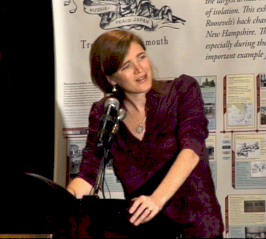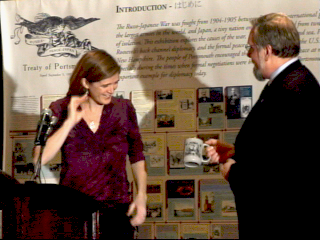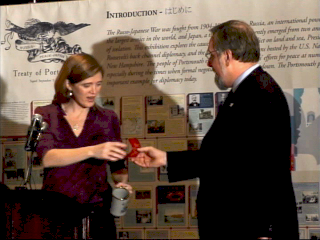- Home
- JOIN
- History
- Maps
- Treaty Forums
- Purpose of the Peace Treaty Forums
- Forum I Jun 1994
- Forum II Oct 1994
- Forum III Sep 1995
- Forum IV Mar 2000
- Forum V Dec 2006 TR Nobel 100th
- Forum VI Dec 2007 with Dennis Ross
- Forum VII Dec 2008 with Samantha Power
- Forum VIII Dec 2009 Obama's Nobel
- Forum IX Nov 2016 Russia-Japan
- Forum X Nov 2019 Jake Sullivan
- Forum XI Sep 2020 Joseph S. Nye Jr.
- Citizen Diplomacy
- Connections
- Spiritual Aspects
- 2005 100th Anniversary
- 2006 Nobel Prize 100th
- 2007 Commemorations
- 2008 Commemorations
- 2009 Commemorations
- 2010 Portsmouth Peace Treaty Day
- 2011 Order of the Rising Sun
- 2012 100 Years of Cherry Trees
- 2013 Historic Marker Dedicated
- 2014 Sister City Celebrations
- 2015 110th Anniversary
- 2016 Commemorations
- William Chandler & Concord, NH
- Kentaro Kaneko & Dublin, NH
- Asakawa, Dartmouth & Hanover NH
- Carey Family & Creek Farm
- Henry Denison & Lancaster, NH
- John Hay & Newbury, NH
- Japanese Visit Manchester, NH
- Wentworth & New Castle, NH
- Portsmouth: Temple Israel, Rev. Clark
- Sarah Farmer & Eliot, Maine
- Adm. Mead & Kittery, Maine
- Elizabeth Perkins & York, Maine
- Educational Resources
- Living Memorial Project
- Contact Us
- 1713 Treaty


QUESTION & ANSWER
SAMANTHA POWER: I’ve done a lot of work over the last semester talking to non-governmental organizations, aid groups that are out there in the field, where you get a lot of feeding, a lot of doing, but not a lot of reflecting. And so I’m trying to take the Sergio principles and figure out how they apply to the missions that you’re undertaking. One of the things that we’re trying to do is to get the Sergio life principles -- not just the ones I’ve described but all of them: the learning 7 languages, the kind of appreciation for multicultural diplomacy – and actually get that integrated into the foreign service institute so that young foreign servants in the United States are sort of prepared for these untraditional tasks that they will often be handed. I mean now, a diplomat who goes to Afghanistan is very soon expected to be as knowledgeable about economic development, reconstruction, policing, as they used to be about Sino-Soviet history or whatever. There’s a lot more field work and development work that used to be seen as the problems for non-governmental organizations but were increasingly taken on by the
I think with the movies, it will be easier because it’s sort of an unusual task to take a guy that no one’s ever heard of and say first, “Pay attention to this life. Learn about this life” and then step back and say, “Ok, how does idealism in practice apply to me?” I wouldn’t want people to come away from Sergio or even this lecture [just] saying, “Oh, ok, wonderfully inspiring life story about somebody who operated in worlds I will never go to. I bet he’s got a lot to teach those aid workers and those soldiers who are in those worlds.”
For me, what Sergio inspires is just this sense that “Wow! There’s a problem. What do I have in me to deal with it? How do I have to game it to best help? How can I be rigorous and self-reflective and critical and talk to the unlike-minded and build coalitions and so forth – but here, right here in 
CHARLES DOLEAC:
Let me give you a gift from the group. She will sign books and you can ask bring questions to her if you want…
The National Press Club got this idea from us – this is our Portsmouth Peace Treaty cup.
SAMANTHA POWER: That’s fabulous.
CHARLES DOLEAC: And you may have seen people walking around here with a pin that’s a symbol of the Portsmouth Peace Treaty Anniversary
SAMANTHA POWER: Oh great, Yes, I did see that and wondered what all those colors were.
© Copyright 2005 Japan-America Society of New Hampshire
NH Web Design | Content Management | Web Hosting